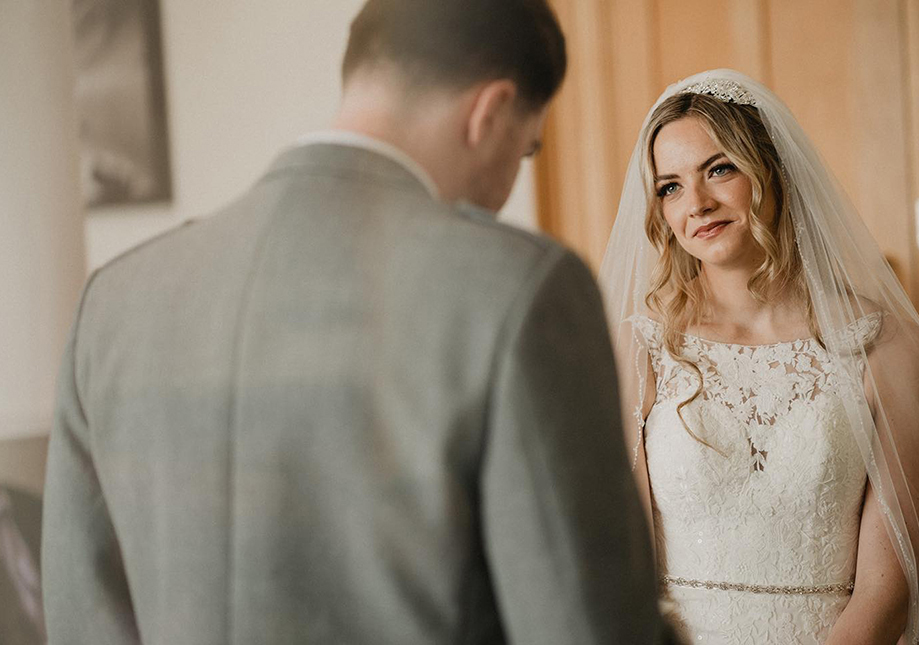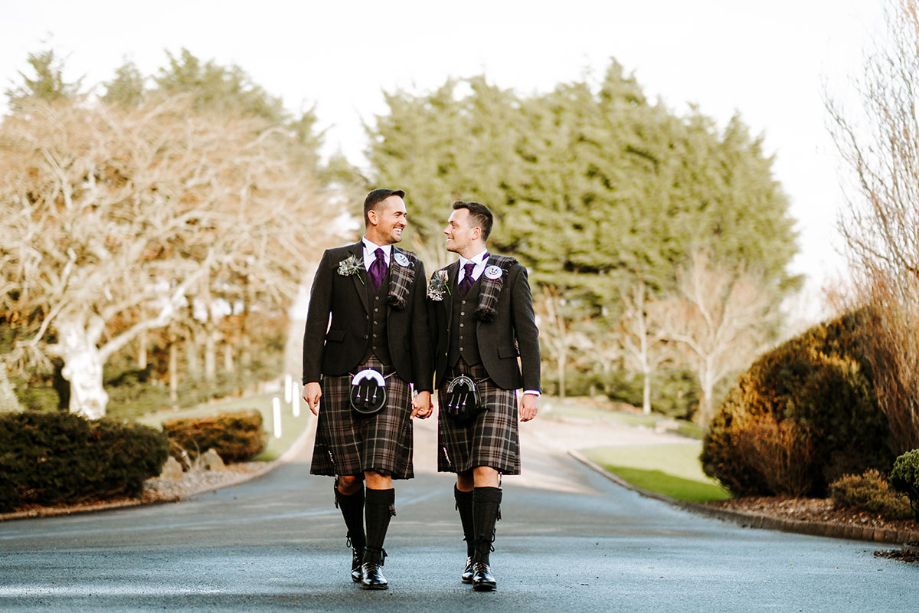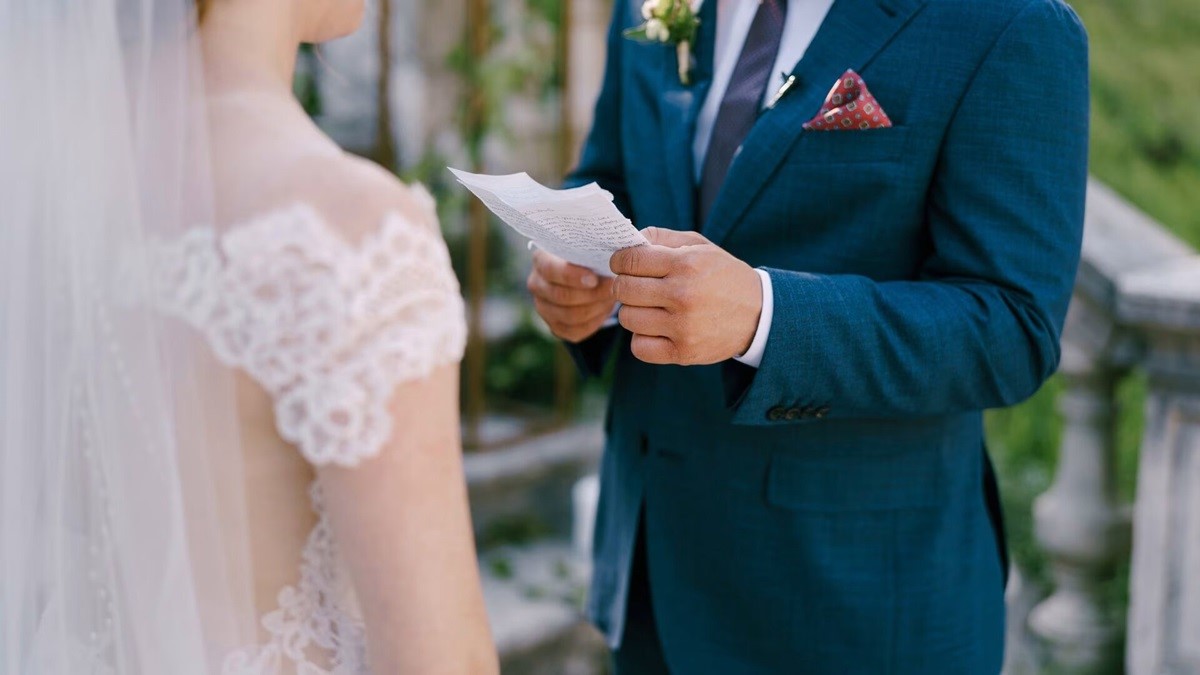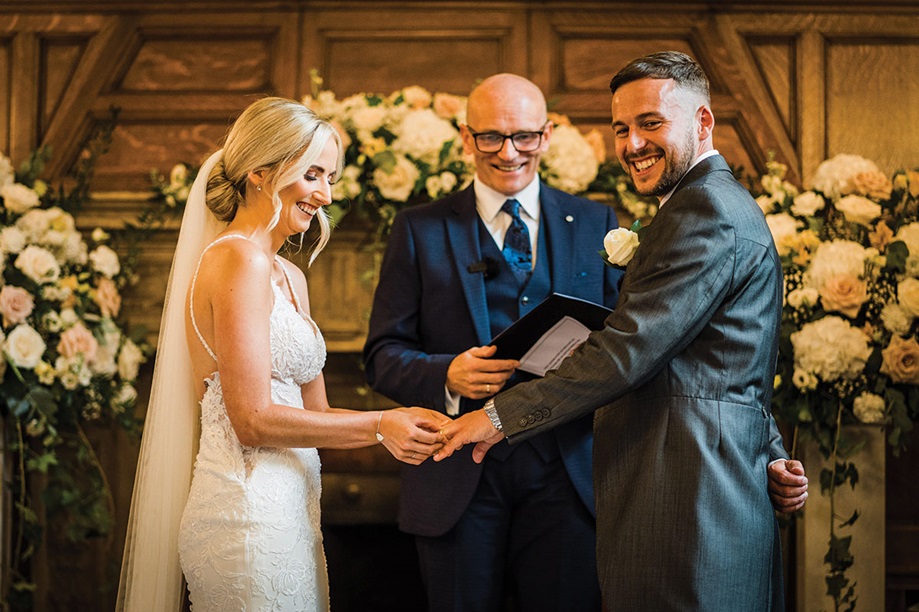There’s a ceremony reading to suit every taste, but so much choice can leave you wondering where to begin

(Photo: Andrew Keher Photography)
We chat to several Scottish celebrants about some things to keep in mind when it comes to choosing readings for your ceremony, from how to choose the right thing to say, to who should be reading them.
What is a wedding ceremony reading?
Your wedding ceremony can be made up of lots of elements as well as the compulsory vow exchange and signing of the marriage schedule.
To personalise and fill your ceremony with meaningful moments, many couples opt to have a poem, phrase or religious passage read during the ceremony by themselves or a loved one.
Why not get inspired by these amazing modern and traditional wedding readings?
1. DO choose a reading to reflect your personalities
“Are you looking for laughter, something romantic, or perhaps a tearjerker? You’ll want to find texts that reflect you and your partner in a meaningful way,” notes Cindy Cosgrove from Fuze Ceremonies.
Celebrant Jane Bechtel, from Humanist Society Scotland, agrees: “Make sure that the readings are suited to you in some way or another.
"Suddenly coming over all hearts and flowers when you’re usually all beer and mountain bikes can feel a bit fake. As with all aspects of the ceremony, the more ‘you’ it is, the better it will be.”
2. DO ask your celebrant for advice
“I spend quite a bit of time getting to know my couples, so I can understand their style and the atmosphere they want on their day,” explains Naomi Keir, civil celebrant at Conviviate.
“I have a little booklet that I wrote myself, in which I’ve collated lots of choices, providing a shortlist of texts I think they’ll like. I leave the door open for them to call and chat about the suggestions any time they need to.”
3. DO explain why the reading is meaningful to you
Jane Patmore has some good advice if you’re concerned your chosen reading is too common: “Include an explanation of why it is meaningful to you. Did you both read the book as a child? Was it the first film you watched together? Were the words included in your parents’ or grandparents’ wedding ceremonies?”
4. DO make sure religious texts are allowed if you want them
Some celebrants are unable to accommodate a reading from sacred texts like the Bible, or a passage from some other source with religious content in their ceremonies: “Humanist marriage ceremonies focus on the couple and their love for each other,” explains Cindy.
“As humanists, we respect the beliefs of others and the right to freedom of choice, but we can’t incorporate religious content into the ceremony, so we need to ensure there is no worship element in it.”
Other celebrants have more room to manoeuvre when it comes to religious material. “If it’s important to you to have a religious reading, I am happy to include it – it’s your day, not mine,” explains Conviviate’s Naomi Keir.
“That’s one of the benefits of being an independent celebrant, not attached to any organisation or church – I can offer you the exact ceremony you want.”
5. DO consider asking a guest to write a personalised reading
“It is truly meaningful and personal when a friend or family member writes their own reading, but can feel very emotional and vulnerable,” warns Jane Patmore.
“When a family member or friend is struggling to know what to say – and is, quite frankly, freaking out – I advise them to sit down and write a letter to the couple,” Naomi Keir tells us.
“They shouldn’t try to be poetic or clever. Instead, just write from the heart about what the bride or groom means to them, and why they are treasured by the people at the ceremony today."
6. DON'T limit yourself to traditional resources for readings
“Short poems are by far the most popular type of reading, but excerpts from books, songs and personal speeches are also common,” says Craig Flowers of Independent Humanist Ceremonies, who also suggests a quick search online as the best place to start, as this will show you the range of options out there.
Celebrant Maggie Kinloch from Humanist Society Scotland recommends the website Drew’s Script-O-Rama which has thousands of movie screenplays, allowing you to browse through your favourite films and find some lines that are significant to you as a couple. Similarly, music lovers might turn to a resource like genius.com, a database with an enormous archive of lyrics for you to browse.
7. DON'T avoid a reading just because it's popular
Even with so many options to choose from, there are certain texts that many couples gravitate towards. But if a reading holds a special meaning to you as a couple then you shouldn't be put off by its popularity.
8. DON'T cram too many readings in
You may discover lots of readings you love through your research, but for the celebrants we spoke to, less is more.
“A lighthearted reading near the start of the ceremony is a fitting way to have your personality shine through and set the tone for the rest of the day,” observes Cindy from Fuze.
“This will allow you and everyone else to relax. Then, after the legal vows have been said, I would suggest a second reading focusing on your hopes and dreams for the next chapter in your life together as a married couple.”
9. DON'T pick a reader who will feel uncomfortable
If a dear friend or family member is uncomfortable speaking in public, it’s probably best to ask someone else to do a reading. “Pick a person who is not already involved in the ceremony and who is confident speaking in front of an audience,” suggests Barbara Campbell.
“Ideally, they should have a strong speaking voice and a personality that matches the reading.” If your best friend is famous for their sense of humour, play into this by suggesting they go for a lighthearted piece, perhaps saving the serious, romantic texts for an older family member.
10. DON'T worry if you get nervous while reading
Naomi Keir has some words of comfort for any readers who are worried about getting up in front of other guests: “They don’t care if you make a mistake. Even if you do get something wrong, it usually makes it better – more heartfelt and honest, but never worse.”
That said, your reading will suffer if your emotions completely get the better of you. “A reader showing a bit of emotion and having a wee blub can be lovely, but it’s a bit much if they’re in such a state they can’t make themselves understood!” laughs Craig Flowers.
Still planning your wedding ceremony? Have a look at some of the incredible celebrants available in Scotland on our directory




